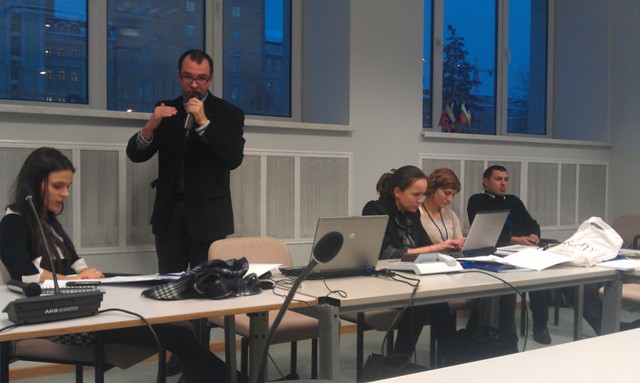Tuesday, 24/02/2026 | 21:14 GMT+7
Workshop and seminar are part of IEA programme to help reduce energy intensity.
Ukraine has one of the most energy-intensive economies in the world, and new reforms to foster sustainable economic development and enhance energy security include large increases in utility tariffs that are very likely to encourage cuts in consumption in the residential sector.
To help the country’s policy makers improve energy efficiency and demand side management, the International Energy Agency this week led expert sessions in Kiev on both analysis and implementation of energy-saving activities.

Along with co-hosts the State Agency on Energy Efficiency and Energy Saving of Ukraine and in collaboration with the European-Ukrainian Energy Agency, IEA analysts led an expert workshop on energy efficiency in buildings and advanced district heating, as well as a training seminar on energy efficiency indicators and policy prioritisation, for around 70 participants from Ukraine’s public and private sectors and non-governmental organisations.
The new tariffs this year are expected to ignite an energy management response that it is hoped will include improved heating controls and sub-metering to encourage conservation. Overall, buildings in Ukraine are very inefficient and the country is highly dependent on natural gas for heating. In its upcoming update of its 2012 review of Ukraine’s energy policies, the IEA calls for a transformation of the energy sector to make it more efficient, secure and sustainable, in large part by enhancing efforts to reduce demand through energy efficiency, particularly for buildings and longer term for district heating systems and the construction industry.
Because sound energy efficiency policies require complete, reliable, and timely energy data, the training provided a theoretical framework and applied methodology to support development of tailored energy efficiency indicators across a range of sectors – especially since the market for energy efficiency is rather diverse and so are the types of investment required. Participants built on the IEA 25 Energy Efficiency Policy Recommendations to single out priorities for Ukraine.
The 23-25 March events were part of a series of IEA engagement activities with Ukraine on energy efficiency co-ordinated by the International Low-Carbon Energy Technology Platform and run through June 2015 and that are financed by the United Kingdom.
Anh Tuan








 Consultation on the methodology for developing and updating energy consumption standards for four major industrial sectors
Consultation on the methodology for developing and updating energy consumption standards for four major industrial sectors
 Opening of the 2025 Energy-Efficient Equipment and Green Transition Exhibition Fair
Opening of the 2025 Energy-Efficient Equipment and Green Transition Exhibition Fair
 Energy-saving solutions and green transition promotion
Energy-saving solutions and green transition promotion
 The 9th VEPG Steering Committee Meeting: Strengthening Coordination for Viet Nam’s Just Energy Transition
The 9th VEPG Steering Committee Meeting: Strengthening Coordination for Viet Nam’s Just Energy Transition